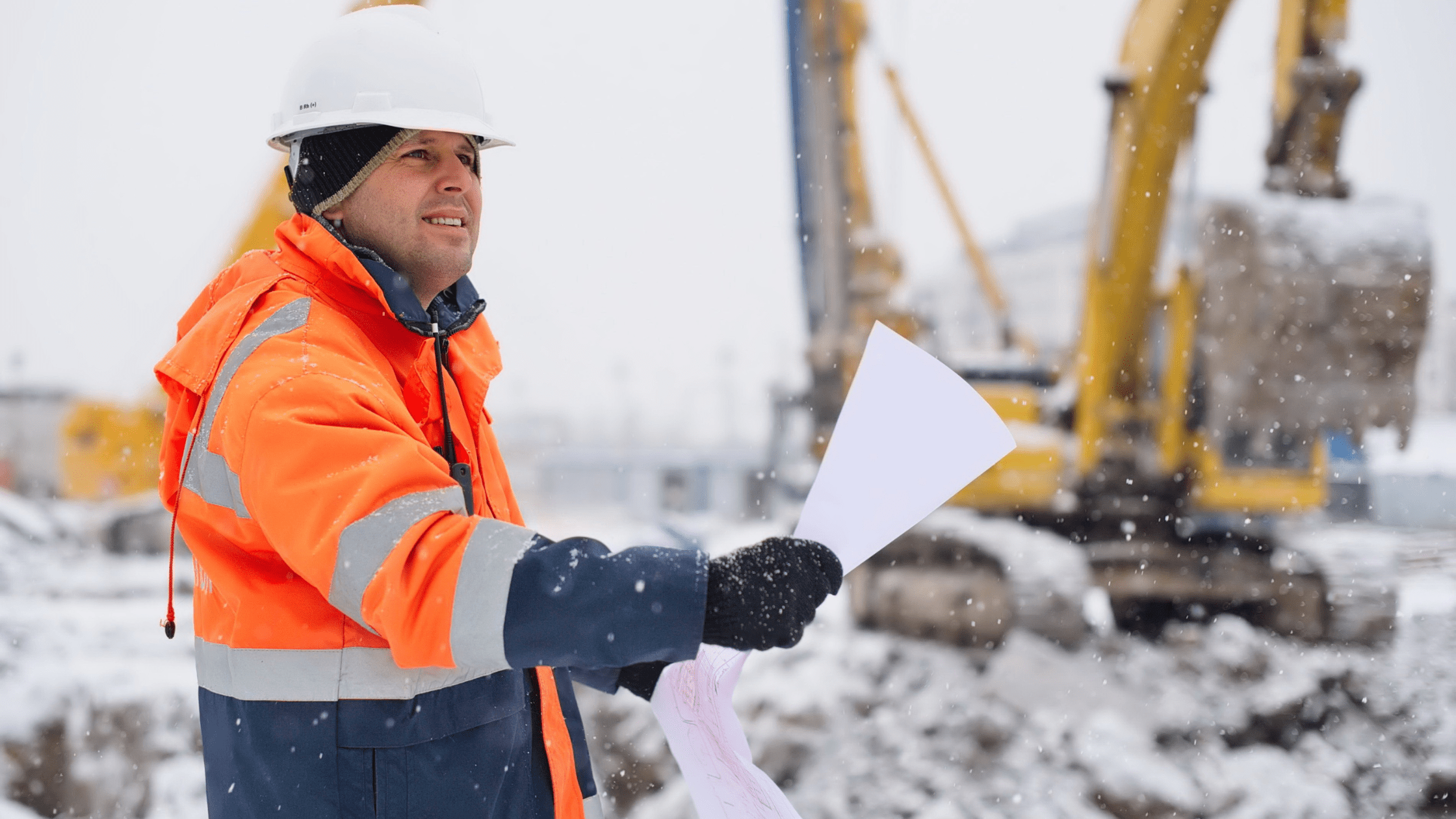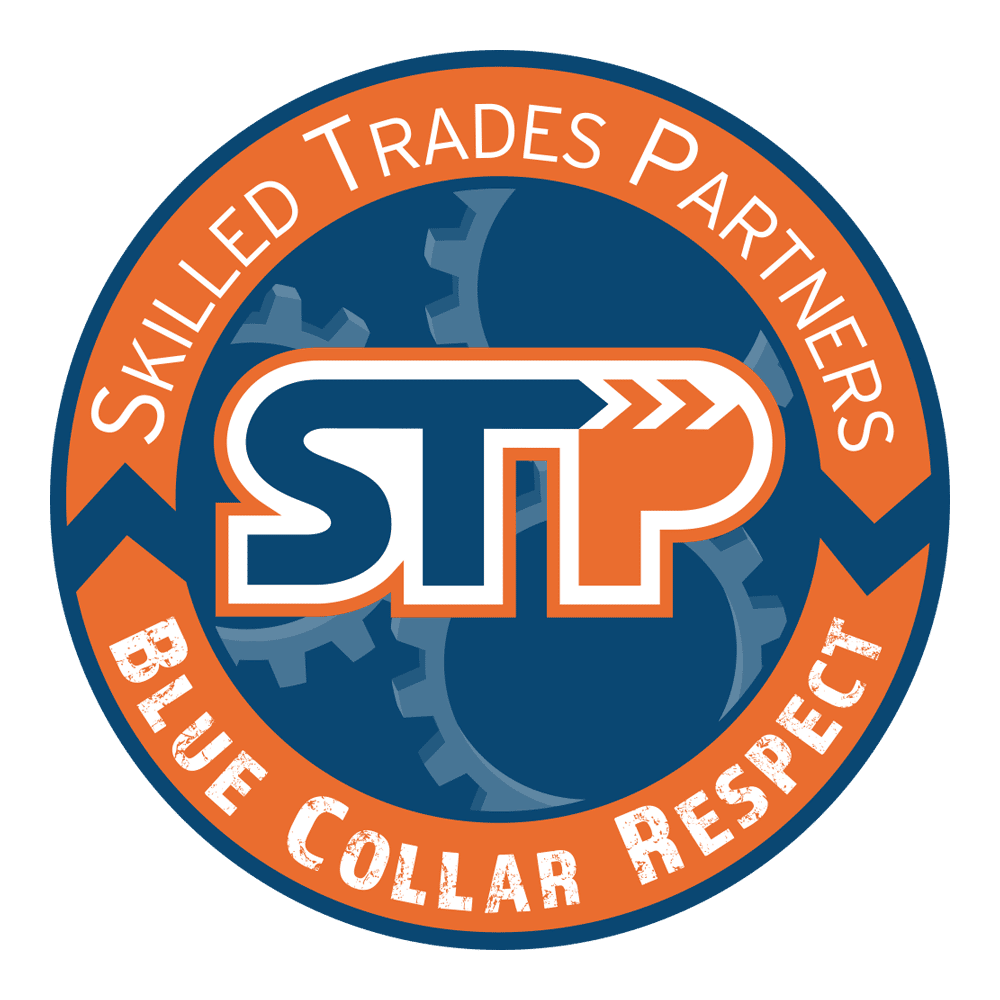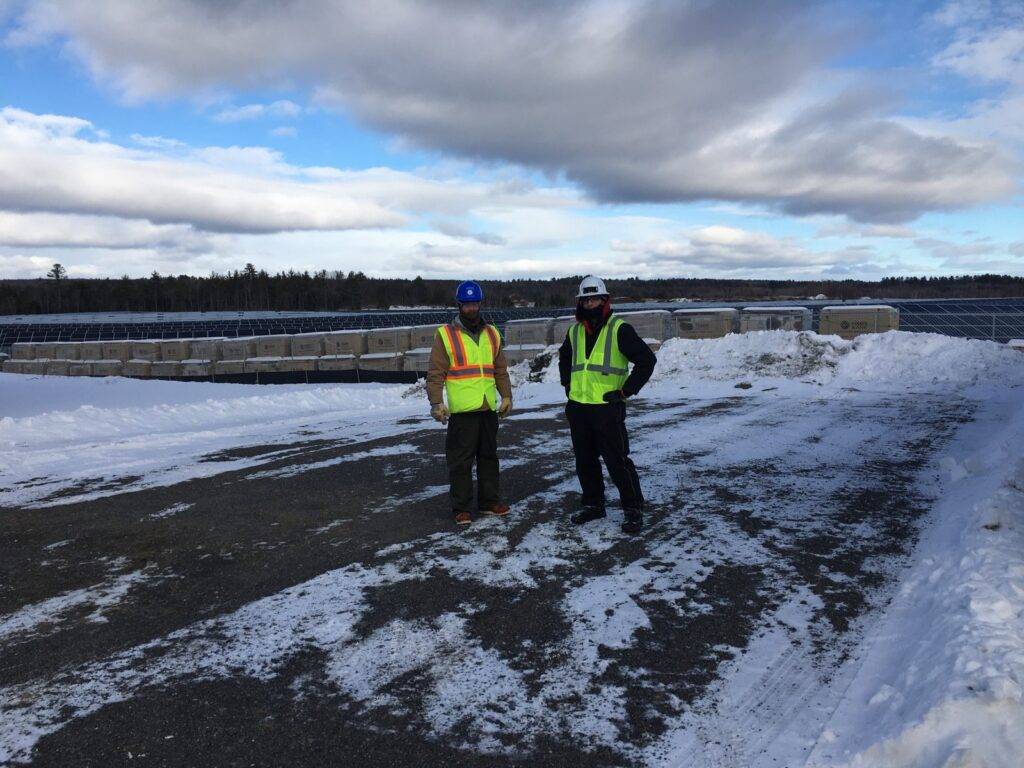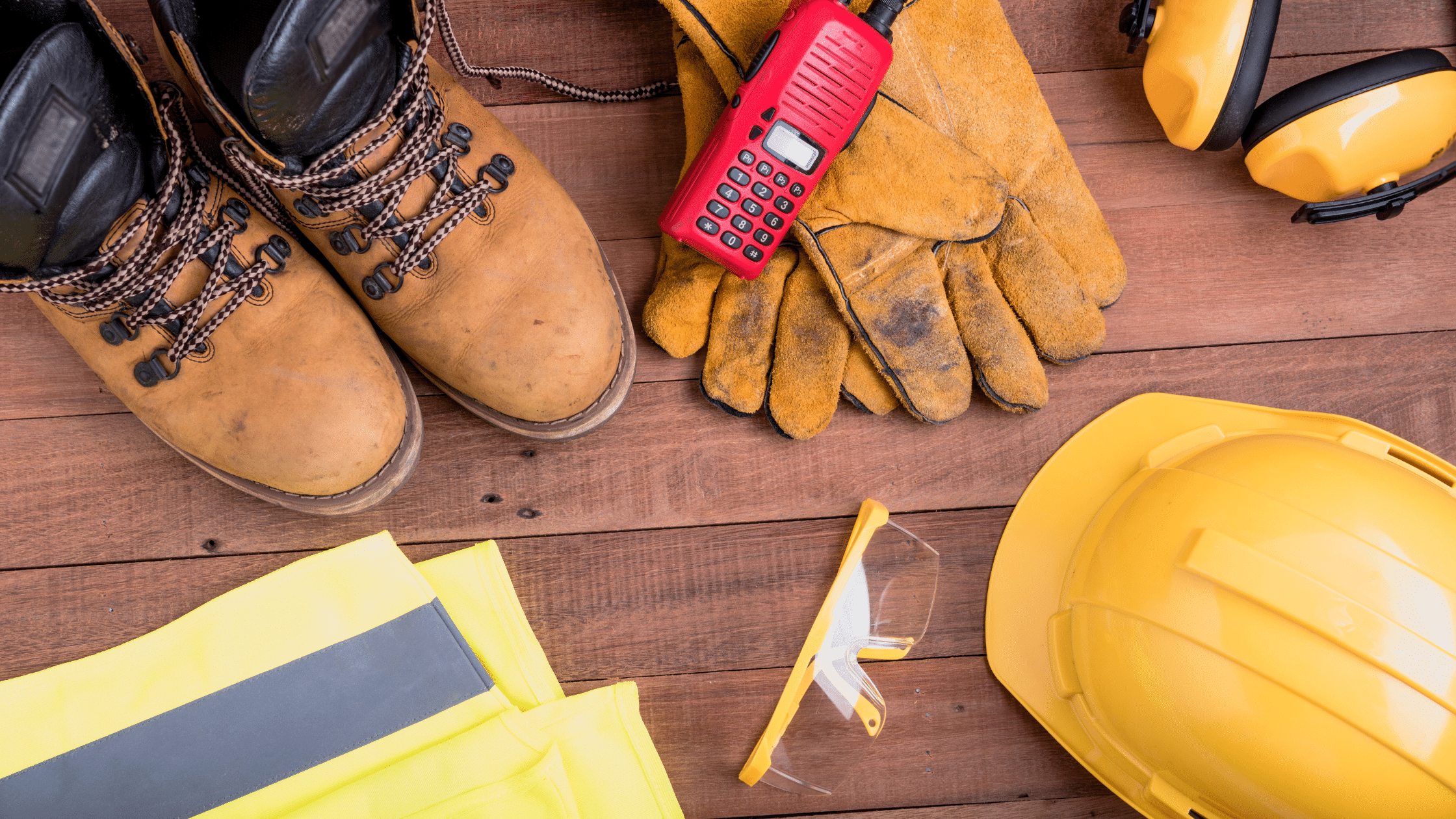Building with Safety in Mind: Safety for Winter Construction Sites
As winter approaches and the temperatures drop, construction sites can become more hazardous for workers. By taking proper precautions and making necessary preparations, we can safely and efficiently get winter construction projects done. Companies must ensure that they equip and train their workforce to handle the challenges of cold weather conditions – which isn’t easy. That’s why we offer safety training for all employees at Skilled Trades Partners, so your construction company doesn’t have to worry about it
This blog post discusses the importance of having OSHA-trained workers in cold weather. It also provides advice on how to keep your construction team safe during the winter season. By implementing these strategies, you can ensure successful and accident-free projects.
Importance and Use of Construction PPE
As the winter season sets in, construction companies need to prioritize the safety and well-being of their workers. To ensure safety on cold-weather construction sites, it is important to provide all workers with appropriate protective gear. This gear will protect them from potential dangers.
Winter construction has difficulties like treacherous surfaces, frigid weather, and limited visibility from snow or fog. These conditions can increase the risk of accidents and injuries on the job. With training and OSHA-compliant PPE, skilled tradesmen can be safe and productive in harsh winter conditions.
Winter construction PPE includes gloves, hats with ear warmers, winter jackets, glasses with anti-fog coatings, and insulated boots. Each of these items plays a crucial role in protecting workers from the cold, as well as the various hazards present on construction sites.
By providing skilled tradesmen with winter-specific PPE, companies can ensure that their employees are well-prepared and protected against the cold. Skilled tradesmen should also receive winter safety training to learn about the dangers and proper procedures for working in cold weather. Not sure how to do this within your construction company? Simply work with a staffing company that will take care of all of these details for you, such as Skilled Trades Partners.

Understanding the Unique Challenges of Winter Construction
Winter construction poses unique challenges that require careful planning and preparation. The cold weather, icy conditions, and reduced visibility can significantly impact the safety and efficiency of construction sites. Understanding these challenges is crucial for companies to develop effective strategies and ensure the well-being of their staff.
One of the key considerations in winter construction is the use of winter-specific personal protective equipment (PPE). This includes insulated gloves, warm headgear, high-visibility winter jackets, anti-fog safety glasses, and insulated work boots. Companies must familiarize themselves with the specific PPE requirements outlined by OSHA to protect their workers adequately.
In addition to PPE, construction companies must also address other safety measures for winter work. In cold weather, it is important to learn about the dangers and how to keep employees safe. This includes knowing the signs of hypothermia and frostbite, staying hydrated and nourished, and taking regular breaks to warm up. Emergency response planning should also be in place to address any unforeseen incidents or accidents.
Some companies hire specialized staffing agencies to find experienced workers for winter construction challenges in cold weather conditions.
To have a successful and safe winter construction project, companies must understand the challenges and take safety measures. Putting ‘ the health and safety of skilled tradespeople first is crucial. By investing in winter safety measures or simply working with a skilled trades staffing company that can take care of the precautions for them, they can keep skilled tradesmen safe and productive in tough winter conditions.
Essential Safety Measures for Winter Work on Construction Sites
Winter construction work has special challenges. Safety measures are needed to protect construction teams’ well-being. Here are some key safety measures to implement during the winter months:
Give workers winter-specific PPE that meets OSHA’s requirements for protection in cold weather.
This includes insulated gloves, warm headgear, high-visibility winter jackets, anti-fog safety glasses, and insulated work boots. Winter-specific PPE protects workers from the cold and the hazards associated with construction sites.
Train Workers on Winter Safety to Educate Them About the Risks and Best Practices of Working in Cold Weather.
Topics we’ll cover: signs of hypothermia and frostbite, staying hydrated and nourished, and taking regular breaks to warm up. Winter safety training ensures that workers are knowledgeable about staying safe during the winter months.
Implement Emergency Response Planning
Accidents and incidents can happen, so it is essential to have an emergency response plan in place. The plan should include procedures for handling unexpected accidents such as slips and falls. It should also provide instructions for emergency communication and evacuation. Regular drills and practice sessions should be conducted to ensure workers are familiar with the emergency response plan.
Conduct Regular Site Inspections
Regular inspections should be conducted to identify potential hazards and address them promptly. This includes checking for icy surfaces, clearing snow from walkways and work areas, and ensuring proper lighting and visibility on the site. Regular inspections help mitigate risks and maintain a safe working environment.
Equipment and Tools Safety Tips for Cold Weather Conditions
Winter weather can pose unique challenges when it comes to equipment and tool safety on construction sites. Cold temperatures, snow, and ice can affect the performance and safety of construction equipment and tools. Construction companies need to take the necessary precautions to ensure the well-being of their workers and the efficiency of their projects. Here are some important safety tips to keep in mind:
Inspect and Maintain Equipment
Before using any equipment or tools in cold weather, conduct a thorough inspection to identify any signs of damage or wear. Make sure all moving parts are lubricated properly, and any necessary repairs are made promptly. Regular maintenance will help prevent breakdowns and accidents.
When not in use, equipment should be stored in a dry and protected area. This will prevent moisture from causing damage to the equipment and ensure its safe operation.
By following these equipment and tools safety tips, construction companies can prioritize the well-being of their workers and maintain a safe and efficient work environment. With the right safety measures in place, winter construction projects can be completed successfully.
Use Winterized Fuel and Equipment
In cold weather, regular fuel can become thick and cause equipment to malfunction. Make sure to use winterized fuel that is designed for low temperatures. This will help ensure that the equipment operates smoothly and efficiently.
Winterizing equipment is crucial to ensure that it will have safe and efficient operation during cold weather. This includes checking and replacing fluids, inspecting and maintaining equipment to prevent breakdowns, and providing proper storage for equipment to protect it from the elements. Regular equipment maintenance and winterization practices help prevent accidents and delays.
By implementing these essential safety measures, construction companies can ensure the well-being of their teams and maintain productivity even in harsh winter conditions.
Winter work on construction sites requires special attention and planning, and by prioritizing safety, companies can create a secure and accident-free work environment.
Clear Snow and Ice
Before using any equipment or tools, clear away snow and ice from work areas and walkways. This will help prevent slips and falls and ensure the safe operation of machinery.
Provide Insulated Gloves
Workers should always wear insulated gloves when operating equipment or handling tools in cold weather. This will protect their hands from frostbite and provide a better grip on tools..
Utilizing a Staffing Agency to Provide Skilled Tradesmen Who are Prepared with PPE, Tools, and OSHA Safety Training
One effective way to ensure the safety and preparedness of your construction team during the winter months is by utilizing a skilled trades staffing agency that specializes in staffing skilled tradespeople for winter construction. These agencies have a pool of experienced and knowledgeable skilled tradesmen who are prepared to work in cold weather conditions.
Staffing agencies for skilled trades can provide you with skilled tradesmen who are not only equipped with the necessary personal protective equipment (PPE) but also trained in OSHA safety regulations.
They understand the importance of winter-specific PPE requirements and can ensure that the workers they provide are well-prepared to handle the unique challenges of winter construction.
Additionally, these agencies can also assist in providing the necessary tools and equipment for the job. They have access to a wide range of resources and can help ensure that your construction team has everything they need to safely and efficiently complete the project.
By partnering with a skilled trades staffing agency, you can save time and effort in recruiting and training workers, as well as have peace of mind knowing that you are getting skilled tradesmen who are already well-prepared for the winter conditions.


